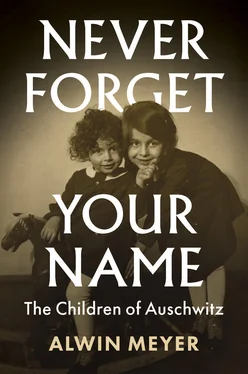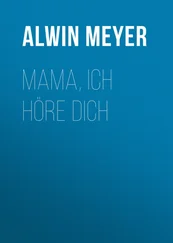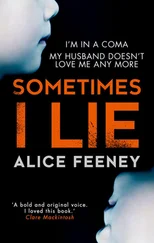The Sochaczewer and Loewenstein families wanted at least to get Jürgen out of Nazi Germany. He was sent to a ‘hakhshara’, an agricultural school, in preparation for emigration to Palestine. 16
On 1 September 1939, Jürgen was standing on the platform at the train station in Sommerfeld (Niederlausitz) waiting for a narrow-gauge train to take him to nearby Schniebinchen. He was carrying his meagre possessions in a cardboard box tied up with string.
‘Hey, kid, where are you going?’ a man asked him.
‘Schniebinchen.’
‘Aha, you want to go to Palestine. That’s where you should all go.’
Jürgen was happy to get out of Berlin. He wanted to ‘start something new, to begin working and carry on learning’. And ‘perhaps I’ll be lucky enough to get away from Germany’.
The emigration centre was on a hill not far from the village of Schniebinchen. There were around 150 children and adolescents aged 14 and over living in three houses. Half of the day was filled with agricultural training. In the other half, they spoke about Zionism, the labour movement, kibbutzim and Palestine studies, did theatre work and played music, read German literature and had to help in the kitchen. ‘Schniebinchen was isolated and we didn’t get much news from outside. Everyone was waiting and hoping to make Aliyah, immigration to Palestine.’
Jürgen enjoyed the work and he learned a lot about things he had never previously heard of: ‘Zionism, the labour movement, kibbutzim and equality, the history of the Jewish people and of Eretz Israel [the birthplace and refuge of the Jewish people]. But we also learned a bit about Hasidism (“The entire life of the Hasid down to the smallest detail is devoted to the service of God.”) 17and German literature.… In the evening, there were theatre and music courses.’ 18But one day Jürgen received a cruel surprise. The director informed him: ‘There’s no place for you here. You’re not suited for community life.’ For Jürgen, this decision was completely incomprehensible. But tears and shouting were of no use.
In 1933, there were 160,000 Jews living in Berlin. 19By September 1939, forced emigration, flight and death, deportation and murder had reduced the number to just around 75,000. 20
The Jewish school in Joachimsthaler Strasse was forced to close. Wolfgang started at the Jewish secondary school at Wilsnacker Strasse 3 in 1940. He tried very hard and was eager to learn. The big question loomed permanently in the background: when would he be able to use what he had learned? ‘This question overshadowed everything.’
After Jürgen was unable to continue the agricultural training in Schniebinchen, he had a stroke of luck. At the time of his rejection, the hakhshara teacher Therese Hemmerdinger was visiting Schniebinchen from Rüdnitz and offered to accept the boy in her group.
A small group of Jewish girls and boys lived in Rüdnitz near Bernau. They were convinced that they would one day go to Eretz Israel. The work in the vegetable garden was not difficult and produced additional food. Friendships were formed and future plans hatched. We forgot what was going on in the world. The horrors of war were far away.
The first news of deportations to the East reached Rüdnitz. ‘Some fellow students whose parents were on the list didn’t know what to do: to go back to their families or to remain in the hakhshara. It was decided that we should all stay together.’
During this time, Wolfgang Wermuth was able to finish his schooling in Berlin at the Jewish secondary school in Wilsnacker Strasse in April 1941.
Then came the ‘big bang’ for him: he was recruited immediately with around 19,000 Jewish women and men from Berlin in the middle of the year for essential war production. 21It was claimed that, without the forced labour, the economy and the conduct of the war in Nazi Germany would have collapsed at the latest by early 1942. 22
Wolfgang was 14 years old. He was assigned to the Deutsche Waffen- und Munitionsfabriken in Berlin-Borsigwalde for an hourly wage of 27 pfennig. Work started at 6 a.m. ‘I rode the S-Bahn to Friedrichstrasse, changed trains and had then to walk for 20 to 25 minutes.’ They worked separately from the non-Jewish employees in ‘large, locked, cage-like things’. They had to wear a blue armband with a red dot on it and were only allowed to go to the toilet in groups of ten.
Wolfgang checked bullets for cracks. ‘We deliberately allowed lots of small defects to pass. We knew quite well who the ammunition was intended for. The inspection could not always be precisely traced, but we could not commit real acts of sabotage.’ But it was still risky to allow defects to pass. Anyone caught doing so was likely to be deported immediately. The Jewish forced labourers had occasional contact with the non-Jewish workers. There were a few young women who secretly gave them sandwiches wrapped in newspaper. ‘We had limited rations and ration cards.’
One day, Wolfgang got a splinter of metal in his eye. ‘My father applied for me to be taken off the factory work.’ He now worked in a small typewriter factory near the Landwehrkanal, ‘where the conditions were quite decent’. Wolfgang was on the late shift from 2 to 11 p.m. ‘There were more and more air raid warnings and actual air raids.’
The Jews were not allowed to eat in the factory canteen, which was reserved for ‘Germans’. There was thus very little contact. Wolfgang recalls a young woman in the pay department who was always nice to him. Once she gave him a bottle of lemonade she had hidden behind a brick. He secretly returned the empty deposit bottle to her. He travelled by S-Bahn to work and his ticket was only valid for that journey. ‘There would be problems if I took another route, and there were lots of controls.’
One night on the way home, Wolfgang was sitting opposite a woman. She saw the yellow star on his clothing. ‘She asked me if I really had to wear the star and if I was hungry. We didn’t get a lot to eat, but we weren’t hungry.’ The woman gave him a package to take with him. ‘I’m sure she didn’t have a lot herself.’ In the package was a cooked meatloaf. When he told his mother about it, she said: ‘You see, there are still decent people.’ Things like this would give her a little hope again.
In 1940/1, one hakhshara centre after another was closed down. For Jürgen Loewenstein, this was now a common occurrence. ‘We arrived at a new place, continued the work of those who were no longer there, and didn’t even ask where they had gone to.’ He went from Ellguth in Silesia (now Ligota Oleska, Poland), Eichow-Muhle in Spreewald, and Ahrensdorf near Luckenwalde to Paderborn. 23From 9 January 1942, the 100-strong group lived in barracks at Grüner Weg 86. 24They worked as forced labourers for the city. Jürgen was a road sweeper and rubbish collector.
Now and then, Jürgen and his colleagues were given food by the local inhabitants, including the owner of a bakery they passed every week: ‘The baker came out of his shop and pulled out a loaf of bread from under his apron and handed it to us saying: “For God’s sake don’t tell my wife.”’ The same thing happened the following week, ‘but this time it was the baker’s wife who came out of the shop, produced a loaf of bread from under her apron and said: “For God’s sake don’t tell my husband.”’
In spite of the hard physical work, the ‘cultural side of life was not forgotten’:
We naturally celebrated all the Jewish holidays and worked hard at learning Hebrew. We sat together in groups and listened to poems and music. Fritz Schäfer, one of our ‘madrichim’, gave talks, and there was lots of discussion … : ‘When we get to Eretz Israel, we should realize that the Arab fellahin have more in common with us than the middle-class Jews.’ Fanny Bergas, another ‘madricha’, gave a talk on what book we would take with us if we were alone on a desert island.
Читать дальше












